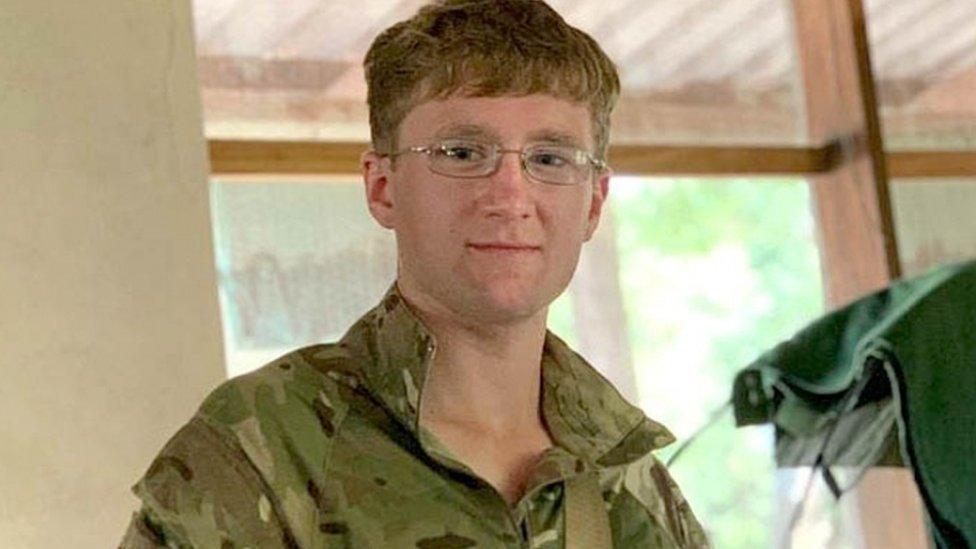Soldier Mathew Talbot, of Great Barr, tried to escape elephant charge, inquest told
- Published

Mathew Talbot, of The 1st Battalion Coldstream Guards, died in May 2019
A soldier was attacked by an elephant in Africa as he tried to climb a tree to escape from it, an inquest heard.
Coldstream Guardsman Mathew Talbot, 22, suffered fatal injuries on an anti-poaching patrol in Liwonde National Park, Malawi, in May 2019.
His comrade L/Sgt Robert Padgham told Oxford Coroner's Court the lead ranger gave a signal warning about the animal.
"We started to back off and... it came charging through so we just dispersed, like we were taught," he said.
Patrol leader L/Sgt Padgham gave evidence via video-link of the attack on 5 May which killed Gdsm Talbot, who was from Great Barr, West Midlands.
"At about 10:00 hours we were patrolling through elephant grass, which is roughly seven feet in height and visibility is limited," he said.
"An elephant appeared roughly five metres to my right."
The inquest was told both soldiers and three park rangers began running in different directions as Gdsm Talbot attempted to climb a "prominent branch" but was seen being "thrown" and "knocked" into the air.
The witness described the elephant's actions as a sweeping motion with its head.
L/Sgt Padgham said he had then thrown a firecracker to successfully scare off a group of elephants.
He described how he immediately began first aid as he went to the soldier and "dragged him into the cover of that tree".
'Personal strength'
He said soldiers on anti-poaching patrols had been taught to fire warning shots to scare away animals, only as a last resort.
But he added: "In my mind personally, if an attack like that happened and I was in a position to, I would have fired a warning shot."
However, he explained he did not want to fire after climbing into a tree during the attack.
"The sharp shooter is quite long-barrelled," he said.
"I was hanging on the tree with one hand. I didn't want to fire a shot in the direction where the animal was in case of hitting Mathew."
The court heard a report had identified the "leadership and personal strength" of L/Sgt Padgham in moving Gdsm Talbot on a stretcher and controlling a haemorrhage, which had been "initially life-saving".
The first day of the inquest was told Gdsm Talbot died from complications of chest and soft tissue injuries.
The hearing, which is expected to last two weeks, continues.

Follow BBC West Midlands on Facebook, external, Twitter, external and Instagram, external. Send your story ideas to: newsonline.westmidlands@bbc.co.uk, external